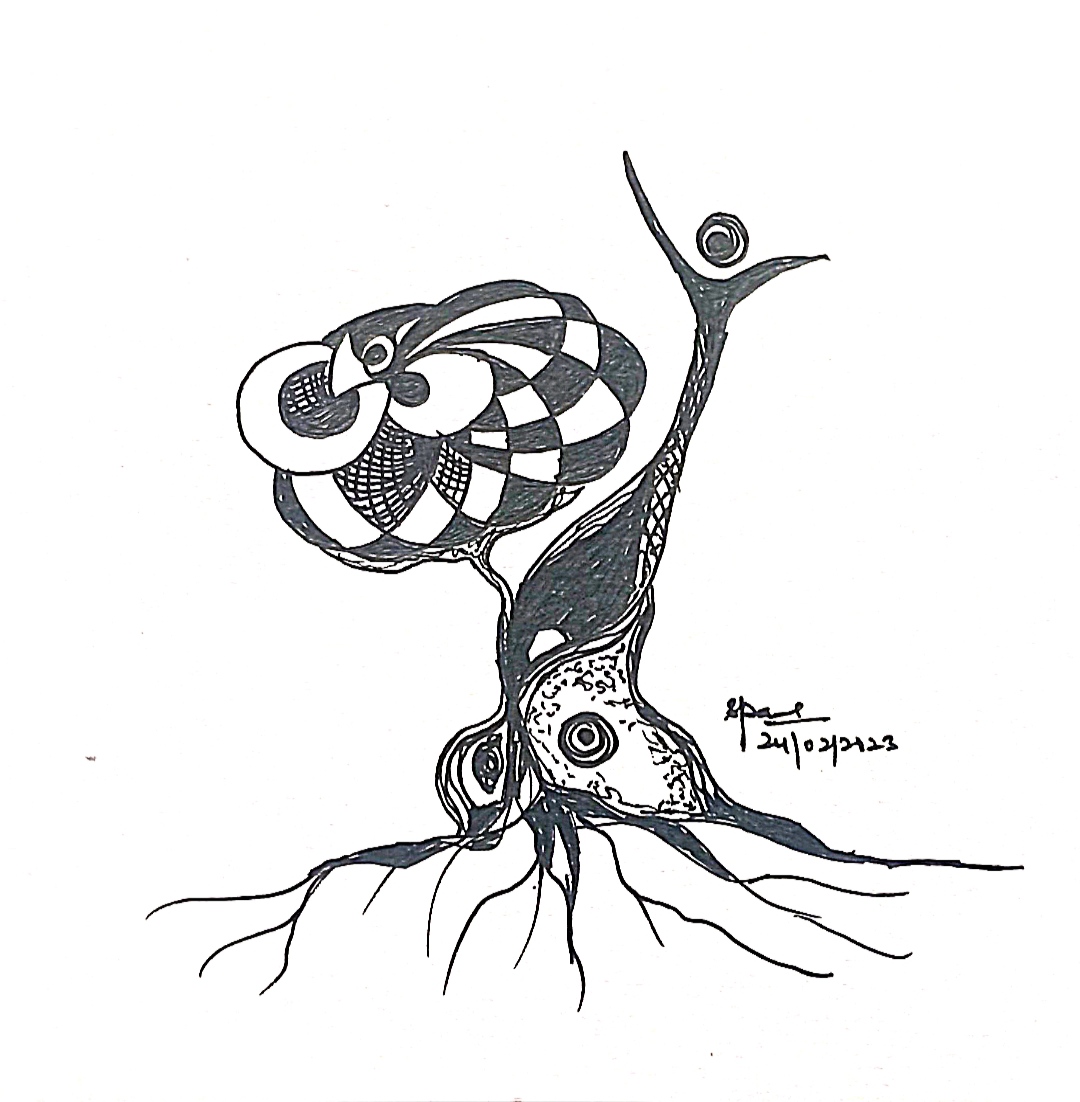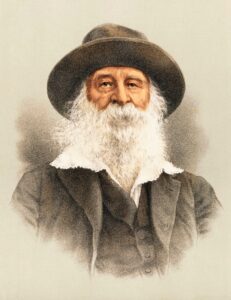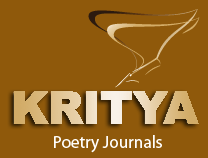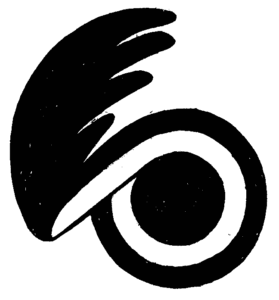
Editor’s Choice
Walt Whitman-
Walt Whitman (May 31, 1819 to March 26, 1892) is regarded as one of the greatest and most influential poets of the United States of America. His poems have been translated into more than 30 languages. He is one who abandoned the rhythmic and metrical structures of European poetry and embraced a free verse style. Many of his poems are patriotic and glorifies America as the liberator of the human spirit.
Whitman was born in a farming community near Huntington, Long Island as the second son among nine children. Whitman had only six years of formal education after which he left school to start work as an apprentice printer. From 1836 to 1838 he worked as teacher in a number of schools. It was in 1838 that he began his journalistic career which he kept up for more than twenty years. He started writing poems and stories and slowly matured as a poet. By the time his monumental work Leaves of Grass was published in 1855, Walt Whitman had matured as a remarkable poet. Whitman kept up revising the poems in this collection and editing them till the time of his death.
O CAPTAIN! MY CAPTAIN!
O Captain! my Captain! our fearful trip is done,
The ship has weather’d every rack, the prize we sought is won,
The port is near, the bells I hear, the people all exulting,
While follow eyes the steady keel, the vessel grim and daring;

Color lithograph portrait of American poet Walt Whitman (1819 – 1892), late 19th century. (Photo by Stock Montage/Getty Images)
But O heart! heart! heart!
O the bleeding drops of red,
Where on the deck my Captain lies,
Fallen cold and dead.
O Captain! my Captain! rise up and hear the bells;
Rise up — for you the flag is flung — for you the bugle trills,
For you bouquets and ribbon’d wreaths — for you the shores a-crowding,
For you they call, the swaying mass, their eager faces turning;
Here Captain! dear father!
This arm beneath your head!
It is some dream that on the deck,
You’ve fallen cold and dead.
My Captain does not answer, his lips are pale and still,
My father does not feel my arm, he has no pulse nor will,
The ship is anchor’d safe and sound, its voyage closed and done,
From fearful trip the victor ship comes in with object won;
Exult O shores, and ring O bells!
But I with mournful tread,
Walk the deck my Captain lies,
Fallen cold and dead.
A NOISELESS, PATIENT SPIDER
A noiseless, patient spider,
I mark’d, where, on a little promontory, it stood, isolated;
Mark’d how, to explore the vacant, vast surrounding,
It launch’d forth filament, filament, filament, out of itself;
Ever unreeling them–ever tirelessly speeding them.
And you, O my Soul, where you stand,
Surrounded, surrounded, in measureless oceans of space,
Ceaselessly musing, venturing, throwing,–seeking the spheres, to connect them;
Till the bridge you will need, be form’d–till the ductile anchor hold;
Till the gossamer thread you fling, catch somewhere, O my Soul.
I Sit and Look Out
I sit and look out upon all the sorrows of the world, and upon all
oppression and shame;
I hear secret convulsive sobs from young men, at anguish with
themselves, remorseful after deeds done;
I see, in low life, the mother misused by her children, dying,
neglected, gaunt, desperate;
I see the wife misused by her husband–I see the treacherous seducer
of young women;
I mark the ranklings of jealousy and unrequited love, attempted to be
hid–I see these sights on the earth;
I see the workings of battle, pestilence, tyranny–I see martyrs and
prisoners;
I observe a famine at sea–I observe the sailors casting lots who
shall be kill’d, to preserve the lives of the rest;
I observe the slights and degradations cast by arrogant persons upon
laborers, the poor, and upon negroes, and the like;
All these–All the meanness and agony without end, I sitting, look
out upon,
See, hear, and am silent.
Miracles
Why! who makes much of a miracle?
As to me, I know of nothing else but miracles,
Whether I walk the streets of Manhattan,
Or dart my sight over the roofs of houses toward the sky,
Or wade with naked feet along the beach, just in the edge of the
water,
Or stand under trees in the woods,
Or talk by day with any one I love–or sleep in the bed at night with
any one I love,
Or sit at table at dinner with my mother,
Or look at strangers opposite me riding in the car,
Or watch honey-bees busy around the hive, of a summer forenoon,
Or animals feeding in the fields,
Or birds–or the wonderfulness of insects in the air,
Or the wonderfulness of the sun-down–or of stars shining so quiet
and bright,
Or the exquisite, delicate, thin curve of the new moon in spring;
Or whether I go among those I like best, and that like me best–
mechanics, boatmen, farmers,
Or among the savans–or to the soiree–or to the opera,
Or stand a long while looking at the movements of machinery,
Or behold children at their sports,
Or the admirable sight of the perfect old man, or the perfect old
woman,
Or the sick in hospitals, or the dead carried to burial,
Or my own eyes and figure in the glass;
These, with the rest, one and all, are to me miracles,
The whole referring–yet each distinct, and in its place.
To me, every hour of the light and dark is a miracle,
Every cubic inch of space is a miracle,
Every square yard of the surface of the earth is spread with the
same,
Every foot of the interior swarms with the same;
Every spear of grass–the frames, limbs, organs, of men and women,
and all that concerns them,
All these to me are unspeakably perfect miracles.
To me the sea is a continual miracle;
The fishes that swim–the rocks–the motion of the waves–the ships,
with men in them,
What stranger miracles are there?
Out of the Cradle Endlessly Rocking
Out of the cradle endlessly rocking,
Out of the mocking-bird’s throat, the musical shuttle,
Out of the Ninth-month midnight,
Over the sterile sands and the fields beyond, where the child
leaving his bed wander’d alone, bareheaded, barefoot,
Down from the shower’d halo,
Up from the mystic play of shadows twining and twisting as
if they were alive,
Out from the patches of briers and blackberries,
From the memories of the bird that chanted to me,
From your memories sad brother, from the fitful risings and
fallings I heard,
From under that yellow half-moon late-risen and swollen as
if with tears,
From those beginning notes of yearning and love there in
the mist,
From the thousand responses of my heart never to cease,
From the myriad thence-arous’d words,
From the word stronger and more delicious than any,
From such as now they start the scene revisiting,
As a flock, twittering, rising, or overhead passing,
Borne hither, ere all eludes me, hurriedly,
A man, yet by these tears a little boy again,
Throwing myself on the sand, confronting the waves,
I, chanter of pains and joys, uniter of here and hereafter,
Taking all hints to use them, but swiftly leaping beyond them,
A reminiscence sing.
Once Paumanok,
When the lilac-scent was in the air and Fifth-month grass
was growing,
Up this seashore in some briers,
Two feather’d guests from Alabama, two together,
And their nest, and four light-green eggs spotted with brown,
And every day the he-bird to and fro near at hand,
And every day the she-bird crouch’d on her nest, silent, with
bright eyes,
And every day I, a curious boy, never too close, never
disturbing them,
Cautiously peering, absorbing, translating.
Shine! shine! shine!
Pour down your warmth, great sun!
While we bask, we two together.
Two together!
Winds blow south, or winds blow north,
Day come white, or niqht come black,
Home, or rivers and mountains from home,
Singing all time, minding no time,
While we two keep together.
Till of a sudden,
May-be kill’d, unknown to her mate,
One forenoon the she-bird crouch’d not on the nest,
Nor return’d that afternoon, nor the next,
Nor ever appear’d again.
And thenceforward all summer in the sound of the sea,
And at night under the full of the moon in calmer weather,
Over the hoarse surging of the sea,
Or flitting from brier to brier by day,
I saw, I heard at intervals the remaining one, the he-bird,
The solitary guest from Alabama.
Blow! blow! blow!
Blow up sea-winds along Paumanok’s shore;
I wait and I wait till you blow my mate to me.
Yes, when the stars glisten’d,
All night long on the prong of a moss-scallop’d stake,
Down almost amid the slapping waves,
Sat the lone singer wonderful causing tears.
He call’d on his mate,
He pour’d forth the meanings which I of all men know.
Yes my brother I know,
The rest might not, but I have treasur’d every note,
For more than once dimly down to the beach gliding,
Silent, avoiding the moonbeams, blending myself with the
shadows,
Recalling now the obscure shapes, the echoes, the sounds
and sights after their sorts,
The white arms out in the breakers tirelessly tossing,
I, with bare feet, a child, the wind wafting my hair,
Listen’d long and long.
Listen’d to keep, to sing, now translating the notes,
Following you my brother.
Soothe! soothe! soothe!
Close on its wave soothes the wave behind,
And again another behind embracing and lapping, every one close,
But my love soothes not me, not me.
Low hangs the moon, it rose late,
It is lagging–O I think it is heavy with love, with love.
O madly the sea pushes upon the land,
With love, with love.
O night! do I not see my love fluttering out among the breakers?
What is that little black thing I see there in the white?
Loud! loud! loud!
Loud I call to you, my love!
Hiqh and clear I shoot my voice over the waves,
Surely you must know who is here, is here,
You must know who I am, my love.
Low-hanging moon!
What is that dusky spot in your brown yellow?
O it is the shape, the shape of my mate!
O moon do not keep her from me any longer.
Land! land! O land!
Whichever way I turn, 0 I think you could give me my mate
back again if you only would,
For I am almost sure I see her dimly whichever way I look.
O rising stars!
Perhaps the one I want so much will rise, will rise with some of you.
O throat! 0 trembling throat!
Sound clearer through the atmosphere!
Pierce the woods, the earth,
Somewhere listening to catch you must be the one I want.
Shake out carols!
Solitary here, the niqht’s carols!
Carols of lonesome love! death’s carols!
Carols under that lagging, yellow, waning moon!
O under that moon where she droops almost down into the sea!
O reckless despairing carols.
But soft! sink low!
Soft! let me just murmur,
And do you wait a moment you husky-nois’d sea,
For somewhere I believe I heard my mate responding to me,
So faint, I must be still, be still to listen,
But not altogether still, for then she miqht not come immediately
to me.
Hither my love!
Here I am! here!
With this just-sustain’d note I announce myself to you,
This gentle call is for you my love, for you.
Do not be decoy’d elsewhere,
That is the whistle of the wind, it is not my voice,
That is the fluttering, the fluttering of the spray,
Those are the shadows of leaves.
O darkness! 0 in vain!
0 I am very sick and sorrowful.
O brown halo in the sky near the moon, drooping upon the sea!
O troubled reflection in the sea!
O throat! 0 throbbing heart!
And I singing uselessly, uselessly all the niqht.
0 past! 0 happy life! 0 songs of joy!
In the air, in the woods, over fields,
Loved! loved! loved! loved! loved!
But my mate no more, no more with me!
We two together no more.
The aria sinking,
All else continuing, the stars shining,
The winds blowing, the notes of the bird continuous echoing,
With angry moans the fierce old mother incessantly moaning,
On the sands of Paumanok’s shore gray and rustling,
The yellow half-moon enlarged, sagging down, drooping,
the face of the sea almost touching,
The boy ecstatic, with his bare feet the waves, with his hair
the atmosphere dallying,
The love in the heart long pent, now loose, now at last
tumultuously bursting,
The aria’s meaning, the ears, the soul, swiftly depositing,
The strange tears down the cheeks coursing,
The colloquy there, the trio, each uttering,
The undertone, the savage old mother incessantly crying,
To the boy’s soul’s questions sullenly timing, some drown’d
secret hissing,
To the outsetting bard.
Demon or bird! (said the boy’s soul,)
Is it indeed toward your mate you sing? or is it really to me?
For I, that was a child, my tongue’s use sleeping, now I
have heard you,
Now in a moment I know what I am for, I awake,
And already a thousand singers, a thousand songs, clearer,
louder and more sorrowful than yours,
A thousand warbling echoes have started to life within me,
never to die.
O you singer solitary, singing by yourself, projecting me,
O solitary me listening, never more shall I cease
perpetuating you,
Never more shall I escape, never more the reverberations,
Never more the cries of unsatisfied love be absent from me,
Never again leave me to be the peaceful child I was before
what there in the night,
By the sea under the yellow and sagging moon,
The messenger there arous’d, the fire, the sweet hell within,
The unknown want, the destiny of me.
O give me the clew! (it lurks in the night here somewhere,)
O if I am to have so much, let me have more!
A word then, (for I will conquer it,)
The word final, superior to all,
Subtle, sent up–what is it?–I listen;
Are you whispering it, and have been all the time, you sea-
waves?
Is that it from your liquid rims and wet sands?
Whereto answering, the sea,
Delaying not, hurrying not,
Whisper’d me through the night, and very plainly before
daybreak,
Lisp’d to me the low and delicious word death,
And again death, death, death, death,
Hissing melodious, neither like the bird nor like my arous’d
child’s heart,
But edging near as privately for me rustling at my feet,
Creeping thence steadily up to my ears and laving me softly
all over,
Death, death, death, death, death.
Which I do not forget,
But fuse the song of my dusky demon and brother,
That he sang to me in the moonlight on Paumanok’s gray
beach,
With the thousand responsive songs at random,
My own songs awaked from that hour,
And with them the key, the word up from the waves,
The word of the sweetest song and all songs,
That strong and delicious word which, creeping to my feet,
(Or like some old crone rocking the cradle, swathed in sweet
garments, bending aside)
The sea whisper’d me.
The Last Invocation
At the last, tenderly,
From the walls of the powerful fortress’d house,
From the clasp of the knitted locks, from the keep of the well-closed doors,
Let me be wafted.
Let me glide noiselessly forth;
With the key of softness unlock the locks–with a whisper,
Set open the doors O soul.
Tenderly–be not impatient,
(Strong is your hold, O mortal flesh,
Strong is your hold O love.)
Voices
NOW I make a leaf of Voices–for I have found nothing mightier than
they are,
And I have found that no word spoken, but is beautiful, in its place.
O what is it in me that makes me tremble so at voices?
Surely, whoever speaks to me in the right voice, him or her I shall
follow,
As the water follows the moon, silently, with fluid steps, anywhere
around the globe.
All waits for the right voices;
Where is the practis’d and perfect organ? Where is the develop’d
Soul?
For I see every word utter’d thence, has deeper, sweeter, new sounds,
impossible on less terms.
I see brains and lips closed–tympans and temples unstruck,
Until that comes which has the quality to strike and to unclose, 10
Until that comes which has the quality to bring forth what lies
slumbering, forever ready, in all words.
O Me! O Life!
O me! O life!… of the questions of these recurring;
Of the endless trains of the faithless–of cities fill’d with the foolish;
Of myself forever reproaching myself, (for who more foolish than I, and who more faithless?)
Of eyes that vainly crave the light–of the objects mean–of the struggle ever renew’d;
Of the poor results of all–of the plodding and sordid crowds I see around me;
Of the empty and useless years of the rest–with the rest me intertwined;
The question, O me! so sad, recurring–What good amid these, O me, O life?
Answer.
That you are here–that life exists, and identity;


